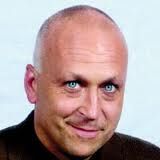“Punting the Pundits” is an Open Thread. It is a selection of editorials and opinions from around the news medium and the internet blogs. The intent is to provide a forum for your reactions and opinions, not just to the opinions presented, but to what ever you find important.
Thanks to ek hornbeck, click on the link and you can access all the past “Punting the Pundits”.
Follow us on Twitter @StarsHollowGzt
Richard (RJ) Eskow: Democrats, Meet the Minimum-Wage Movement
“We’re a movement now,” fast-food worker Latoya Caldwell said Wednesday of the effort by employees in her industry to raise their minimum wage to $15 per hour. That movement’s latest action was a one-day strike that took place in 150 cities across the country on Thursday. It included acts of civil disobedience that activists said led to more than 500 arrests (including that of Wisconsin Rep. Gwen Moore).
New York. Detroit. Kansas City. Chicago. Los Angeles. Little Rock. Atlanta. Boston. Charleston. Hartford. Miami. Philadelphia… All day long there was a sense of electricity in the air as reports came in from one city after another.
The fast-food workers’ issue, a higher minimum wage, is one most Americans understand. It is a cause, and a source of political energy, that Democrats would be wise to embrace. With the midterm elections only two months away, the Democratic Party’s prospects seem doubtful. Experts give Democrats little chance of retaking the House, and they are in grave danger of losing the Senate.
The party needs a spark, a fire, a source of inspiration. It may find those things in an embrace of the minimum wage.
Latonya Allen: Do you want someone caring for your elderly parent to make minimum wage?
I’m a home health care aide, and I joined the fast food protest because a living wage is not too much to ask
Home care workers like me do hard work but don’t get paid enough to live on – just like fast food workers. Those workers have been protesting in my state and around the country for a minimum wage of at least $15 an hour. On Thursday, I joined them because I need what they need – a living wage, benefits like paid sick leave, and the right to form a union without retaliation.
Home care workers want states, the companies we work for, and our elected officials to ensure that seniors and people with disabilities can live at home with dignity and independence. They should be cared for by trained workers, like me, who also are treated with dignity and a little appreciation for the professional service we provide. [..]
Something is wrong in America when many of the people who do essential work that makes the country run every day don’t have enough money to live on, while big companies are making billions of dollars. Whether we work in home care or fast food or some other kind of job, it’s time for us to work together and change that.
Jessica Valenti:
Domestic violence is a problem we are barely managing. But we need to end it
Reporting, prosecution and incarceration haven’t eliminated intimate partner violence. Some new solutions offer women hope
Despite decades of work, activism and policy around intimate partner violence, too many women are still beaten by the men they love.
The feminist response to high-profile public cases of domestic violence – like those of Chris Brown, who was convicted for brutally beating his then-girlfriend Rihanna in 2009, or the NFL players Ray Rice, arrested on domestic violence charges in February, and Ray McDonald, who was just arrested on felony domestic violence charges for assaulting his fiancée – is largely one of frustration. It’s aggravating to watch as the media props up abusers as “good guys”, the victim-blaming that almost always follows, and the attendant lack of punishment for those who perpetrate violence.
Steven W. Thrasher: The long walk to gay equality is the great civil-rights stumble of our time
It’s been a stop-and-start kind of year. But equality is not all court cases and headlines, because a judge doesn’t change hearts and minds. Queer people do
Between 2011 and 2013, theater educator and activist Alan Bounville walked 6,000 miles across the United States with the modest goal “to end gender and sexual orientation discrimination”. Along the way, he went through 21 pairs of shoes, but not a single state he walked through offered equality – not the marriage kind, or much of any other variety.
By the time Bounville reached New York City, however, a lot had changed. Marriage was legal in many more states than when he’d departed. Don’t Ask, Don’t Tell had been repealed for gay, lesbian and bisexual service members. President Obama came out more forcefully for certain gay rights.
Now, a year after his walk and the supposedly breakthrough Doma and Prop 8 decisions at the US supreme court, Bounville isn’t especially optimistic about the state of queer rights, despite all the progress. “We aren’t changing much. We are, but we’re not,” he told me this week, the day a Louisiana judge broke a streak of same-sex marriage equality rulings – and the day before an appeals court struck down gay marriage bans in Wisconsin and Indiana. He emphasized violence, transphobia and economic injustice. He’s appalled schools that “still don’t have the resources, even here in New York City”, to deal with anti-gay bullying.
Dennis J. Kucinich: ISIS, Libya, NATO, and Preventing the Next 9/11
Those who call for immediate military action rarely have a long-term strategy. That is why America’s march of folly from Iraq to Libya has been a recruiting tool for jihadist forces, including ISIS.
As a member of Congress before and after 9/11, I took (and continue to take) the threat of terrorism seriously, and therefore I vociferously warned against military actions in Iraq and Libya; military actions which ultimately undermined our national security.
The West launched an attack against Libya, amid false claims about an impending massacre in Benghazi, to justify regime change. However, it was obvious to me, and a vocal minority at the time, that military strikes and the arming of unknown rebels (i.e. non-state actors: terrorists) would the result in instability, hurt innocent civilians, and create regional chaos, empowering extremists.
Lindsay Ambrams: The EPA is (finally) taking on air travel
After years of pressure, the agency took a first step toward regulating a major source of emissions
It looks like it might finally be time to start talking about the big flying elephant in the fight against climate change. Air travel, its many benefits aside, is our most carbon-intensive mode of transportation. Right now, it accounts for about 4 percent of total U.S. emissions. Globally, aircraft-related emissions are projected to rise at an alarming rate: about 3 to 4 percent annually, meaning they could quadruple by midcentury. And Thursday, the Environmental Protection Agency took the first step in a process that could end in the decision to regulate those emissions, announcing its intention to study the health dangers they pose.
This is a long, long time coming. A coalition of environmental groups have been pushing the EPA to regulate greenhouse gas emissions from domestic and foreign aircraft that land at U.S. airports since 2007, and have been struggling, since then, to compel the agency to take action. The EPA continued to drag its feet even after a judge found, in 2011, that it was mandated to study the effects of aircraft emissions; at the beginning of August, two groups, the Center for Biological Diversity and Friends of the Earth, notified the agency of their intention to sue for a second time over its “unreasonable delay.”



 The name is linked to Samuel Wilson, a meat packer from Troy, New York, who supplied barrels of beef to the United States Army during the War of 1812. Wilson (1766-1854) stamped the barrels with “U.S.” for United States, but soldiers began referring to the grub as “Uncle Sam’s.” The local newspaper picked up on the story and Uncle Sam eventually gained widespread acceptance as the nickname for the U.S. federal government.
The name is linked to Samuel Wilson, a meat packer from Troy, New York, who supplied barrels of beef to the United States Army during the War of 1812. Wilson (1766-1854) stamped the barrels with “U.S.” for United States, but soldiers began referring to the grub as “Uncle Sam’s.” The local newspaper picked up on the story and Uncle Sam eventually gained widespread acceptance as the nickname for the U.S. federal government. Welcome to the Stars Hollow Gazette‘s
Welcome to the Stars Hollow Gazette‘s 


Recent Comments